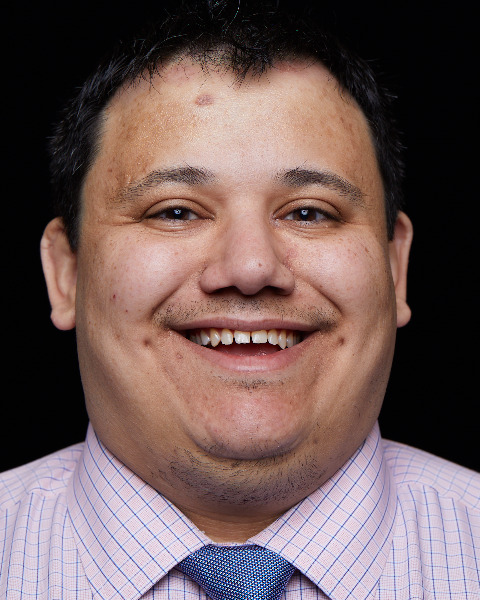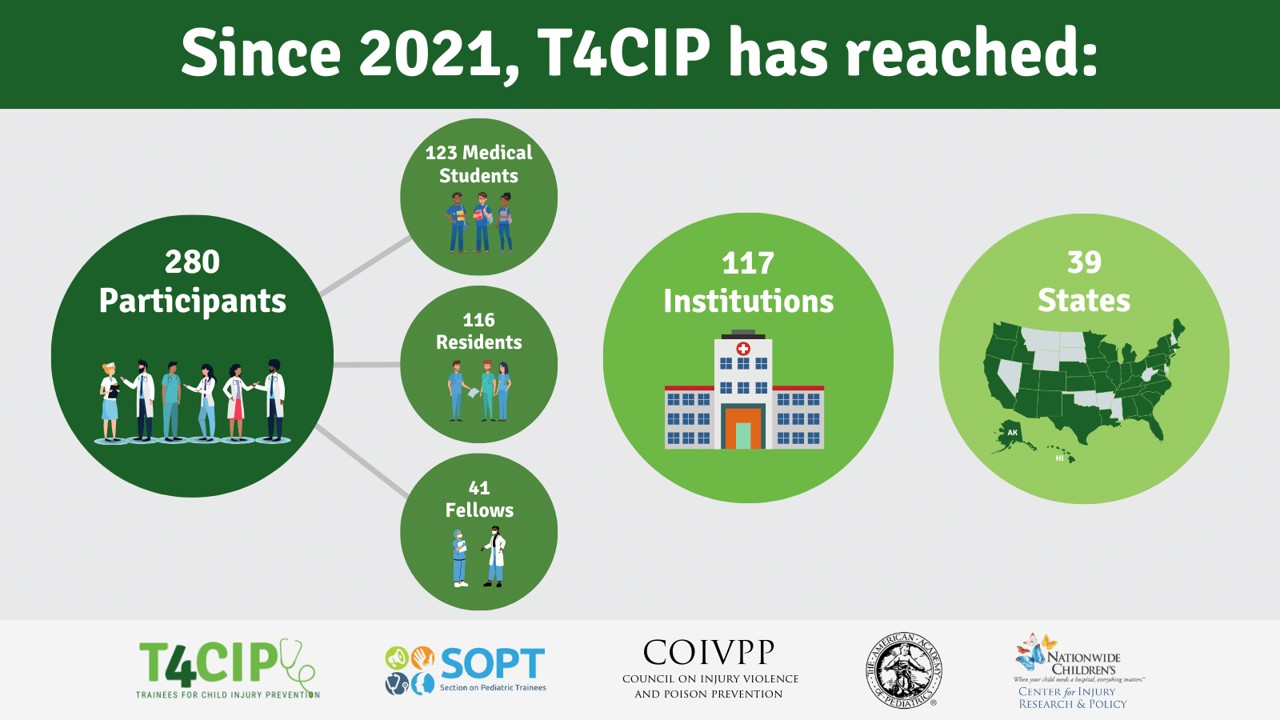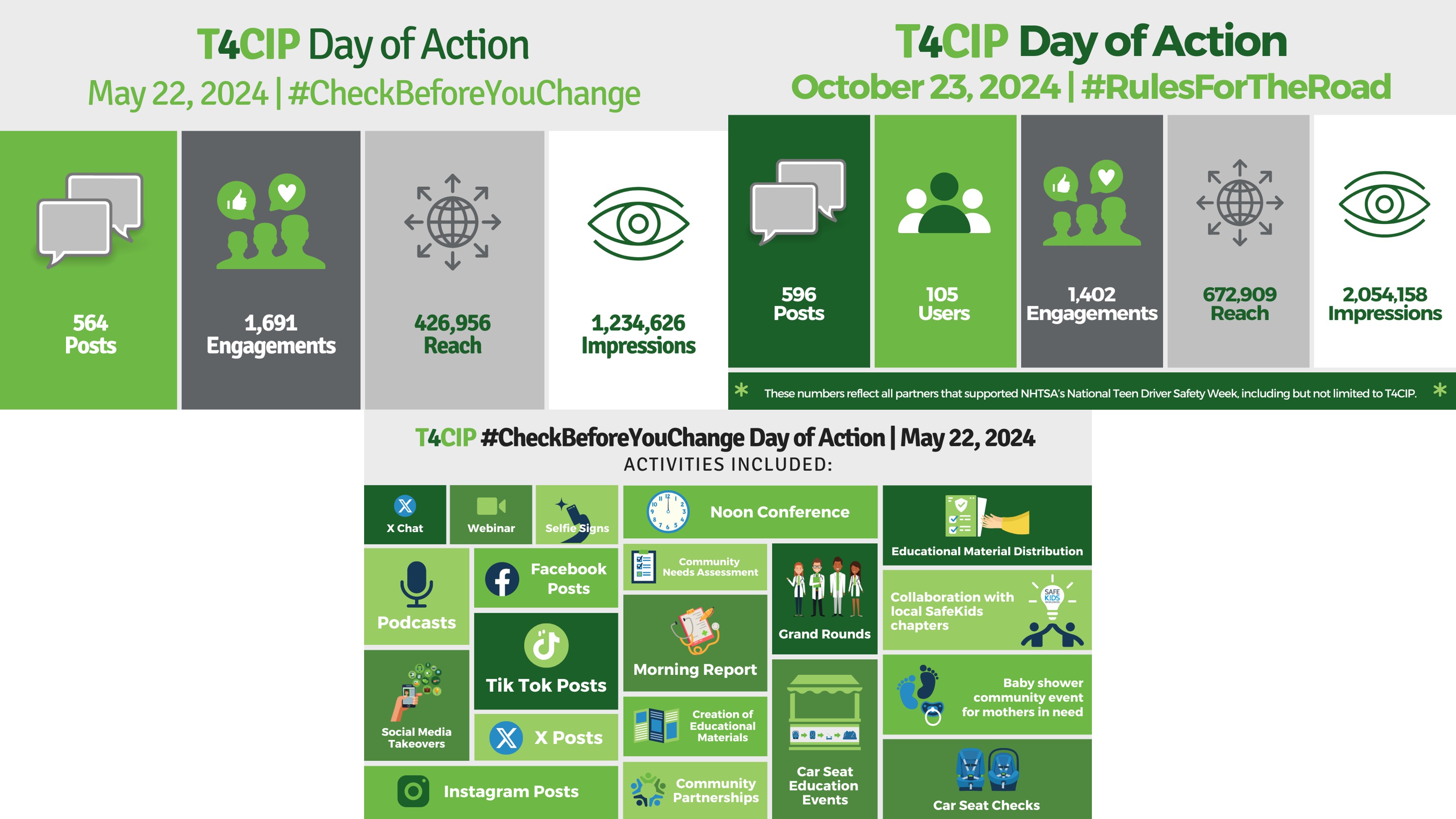Injury Prevention 2
Session: Injury Prevention 2
416 - Empowering the Next Generation of Injury Prevention Advocates: The Trainees For Child Injury Prevention (T4CIP) Program
Sunday, April 27, 2025
8:30am - 10:45am HST
Publication Number: 416.4871
Robert Trevino, Nationwide Children's Hospital, Columbus, OH, United States; Tracy Mehan, Nationwide Children's Hospital, Columbus, OH, United States; Gary Smith, Nationwide Children's Hospital, Columbus, OH, United States; Maneesha Agarwal, Emory University School of Medicine, Atlanta, GA, United States

Robert Trevino, MD, PhD (he/him/his)
Fellow
Nationwide Children's Hospital
Columbus, Ohio, United States
Presenting Author(s)
Background: Given that injuries are the leading cause of death for children in the United States, pediatric trainees may benefit from specialized training to become injury prevention advocates.
Objective: The Trainees for Child Injury Prevention (T4CIP) Program provides facilitated support in trainee-initiated outreach activities to promote local and national engagement in injury prevention and advocacy.
Design/Methods: US pediatric trainees apply for a year-long program featuring monthly virtual sessions led by national injury prevention experts. Faculty mentors and T4CIP alumni support participants in applying their new skills during two Days of Action on pediatric injury topics. Graduates may join the alumni committee to support new trainees and engage in long-term advocacy projects.
Results: Since 2021, four cohorts have participated in T4CIP (figure 1). In total, this was 280 trainees (123 medical students, 116 residents, and 41 fellows) that represent 117 institutions across 39 states. Topics addressed include: high-powered magnet ingestions, firearm injuries, helmet use, safe sleep, drowning prevention, cannabis edibles, child passenger safety, and teen driving (figure 2). The curriculum guides knowledge and skill-based trainings, including providing anticipatory guidance for families, addressing health inequities and disparities, leveraging both traditional and social media, building coalitions within communities, engaging with policy and legislation, and increasing injury topic awareness. Through eight Days of Action, trainees have shared close to 5,500 social media messages with over 20 million impressions (figure 3). Participants have published blogs, articles, and letters to the editor; appeared on television; presented at Grand Rounds and trainee lectures; hosted community events to distribute educational materials; and drafted policy recommendations. Participants report increased knowledge and self-efficacy with advocacy skills and pediatric injury prevention; many remain engaged as program alumni. Work from the alumni committee includes: developing advocacy toolkits; creating resources for Days of Action; submitting an AAP resolution; and writing op-eds and letters to the editor.
Conclusion(s): Advocacy education has become a central part of the pediatric training experience, and learning effective skills is essential. This national training program successfully enhances the advocacy skills of pediatric trainees. Similar models can be leveraged to develop pediatric advocates from different fields and on other topics, such as diversity & inclusion across medicine and vaccination efforts.
Figure 1: Summary of T4CIP trainees since 2021

Figure 2: Sample infographic created for each Day of Action
.jpg)
Figure 3: Summary of social media statistics from 2024 Days of Action


